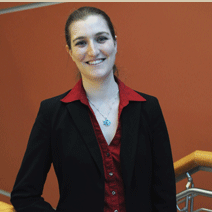About
Dr. Dean earned her S.B., M.Eng., and Ph.D. in Electrical Engineering and Computer Science from the Massachusetts Institute of Technology (MIT). After earning her Ph.D. in 2005, she moved to Clemson University, where she is currently the Rob and Jane Lindsay Family Innovation Professor and Chair of Bioengineering. Her lab leads a wide range of studies focused on understanding mechanics and interactions of biological systems across length scales and instrumentation and device design. Her expertise is in nano-to micro-scale characterization of biological materials and tissues including experimental techniques such as atomic force microscopy and mathematical modeling such as finite element analysis. She currently leads several studies on cardiovascular cells and tissues to understand how the nanostructures of the cellular components of these affect the properties of tissues. In addition, she works on understanding the effect of ionizing radiation on cells and tissues. In addition, she works on translational design projects aimed at creating novel medical devices, sensors, and instrumentation for resource poor settings. Over the last 10 years, she has led several research and design project teams with collaborators in Tanzania and in India to design novel medical devices and diagnostics for low-resource clinical settings. She is the current director of the Clemson-India Center for Innovative Medical Devices and Sensors. She is committed to helping develop new technologies to help low-income and rural patient be able to monitor their health and better connect them to health providers.
Visit Dr. Dean's Faculty Profile or the REDDI Lab page.
How their research is transforming health care
Dr. Dean is focused on creating new devices that can have a true impact on health care delivery. She has spun off two different companies, MedUSim (with J. Nagatomi), and Accessible Diagnostics, LLC (with a former graduate student). Accessible Diagnosis is working to create low-cost smart-phone based health monitoring. The company is currently selling saliva based blood glucose strips that can be read by an app on your phone. In addition, she has helped develop technology that aims to improve breast cancer patient care. They developed a metal detector (International Publication Number: WO 2018/039672 A1) and biodegradable marker that can be used to locate tumors in the operating room and that cuts out an extra lengthy, expensive, and painful pre-surgical localization procedure. To address mother-to-child transmission of HIV with breast feeding, she and her team are currently developing a breast pump with a discreet filter which can inactivate HIV in breast milk. They are also designing new sensors to measure markers of chronic non-communicable diseases in non-blood body fluids through a collaboration with the Medical University of South Carolina funded by NIH (NIH NIMH R01 MH111366). Much of their technology innovations are also “open-source” to allow for broad application in low-resource areas. For instance, they have developed basket-woven braces for neck injuries, which women in Tanzania currently build and sell to rural hospitals. They have designed low-cost patient monitor that can be powered by a hand crank.
Health Research Expertise Keywords
Faculty Scholar, Devices, Instrumentation, Biosensors, Radiation, Computational modeling, Biomechanics

